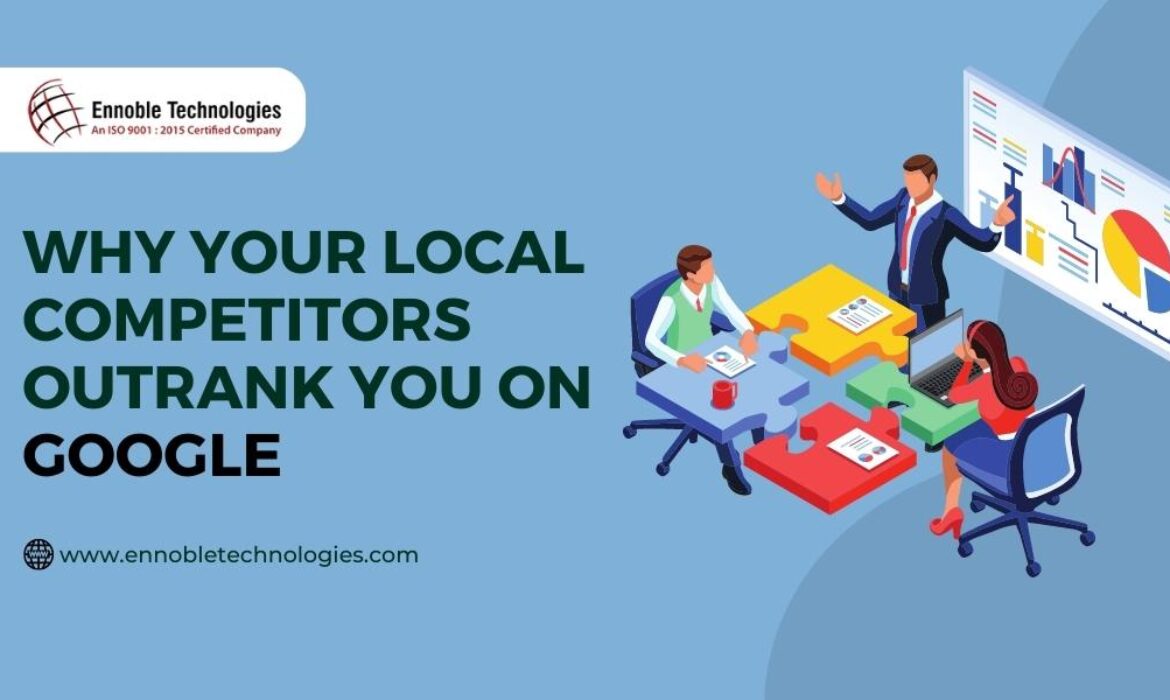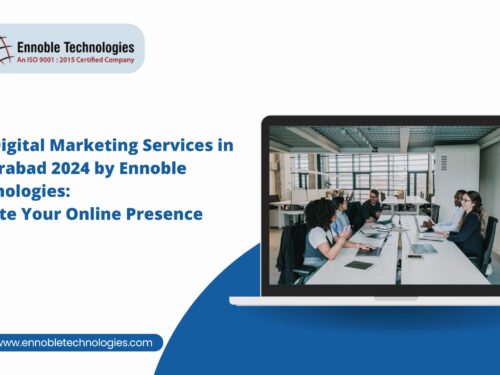The importance of ranking high on Google is well known to everyone. Ranking on the first page of search results can have a significant impact on your revenue. There is no doubt that this is the most effective way to gain more traffic to your website and increase sales.
However, it can be frustrating to see your local competitors outrank you. Especially when you know your website is just as good as theirs. So, you need to know what are those potential reasons behind the downfall of your ranking. This way, you should be able to work on the weak spots and come up with a better solution to solve them. This article will explore why your local competitors might be outranking you on Google, including what steps you can take to regain your position.
8 Reasons why you are unable to perform well on Google
1. Lack of optimization
One of the biggest reasons your local competitors consistently outperform your website is that it isn’t well-optimized for search engines. This means that the website isn’t structured or designed to make it easy for Google to understand and rank it.
Common optimization mistakes include poor website design, slow loading times, and a lack of meta tags and descriptions. To ensure your website is optimized, it’s critical to have a clear structure, fast loading times, and relevant keywords in meta tags and descriptions.
2. Poor quality content
Another reason your competitors outrank you is that your website has inadequate or duplicate content. Poor quality content can cause several problems, including poor search engine visibility and less visitor engagement. It is necessary to regularly update your website with fresh and relevant information. It would be more effective if you focused on creating original, well-written, and easy-to-read content. Additionally, one should avoid posting duplicate content as they may penalize your website.
3. Insufficient backlinks
Backlinks from other websites that point to or connect to your website are key to search engine visibility. If your website doesn’t have relevant and high-quality backlinks, it can be difficult for search engines to understand whether it is relevant and valuable.
To get high-quality backlinks, your website should have useful content that other websites will want to link to. You can also reach out to other websites in your industry and ask for help. Or you can participate in online communities and forums to build relationships and increase the visibility of your website.
4. Negative reputation
Customers are more likely to trust businesses with a positive reputation. If your website has received negative reviews or mentions, it can impact your search engine visibility and stop potential customers from reaching you. Unfortunately, negative reviews can also lead to lower engagement and reduced conversions. To gain a positive reputation, you need to respond to any negative reviews or mentions of your website and address those raised issues. You can also ask satisfied customers to leave positive reviews.
5. Unstructured data
By unstructured data, we mean data that isn’t organized properly, such as information about your products, services, or location. When such information isn’t well structured, it can make it difficult for search engines to understand your website. Using structured data formats, such as Schema.org, would be a very effective way to provide clear and concise information about your business. This helps to improve the visibility and relevance of your website.
6. Outdated SEO practices
Outdated SEO practices, such as keyword stuffing and overusing meta keywords, can negatively impact your site’s visibility and make it difficult for others to find you. When Google finds these issues, it may penalize your website and lower search engine rankings.
To ensure your SEO practices are up-to-date, it’s imperative to know about the latest SEO techniques and strategies. You should be focused on creating high-quality, original content relevant to your target audience and stay away from false or spammy tactics.
7. Technical issues
Like other reasons, technical issues can also impact your search engine visibility. Technical problems can vary from simple website design, slow loading times, and broken links to more complex problems like website coding and functionality issues.
To identify and fix technical problems on your website, it’s wise to regularly check your website for broken links, slow loading times, and other functionality issues. Tools such as Google’s Search Console can help identify and fix such issues.
8. Limited Social Media Presence
Social media can play a significant role in improving your search engine visibility. Promoting your products/services on social media platforms can create a strong online presence that will improve your site’s position.
Additionally, social media platforms can provide valuable backlinks to your website, which can help increase your search engine ranking.
You can rank higher in search engines by consistently posting high-quality content and engaging with your audience on social media.
Conclusion
Following the right strategies is vital to make your website appear in the top search results. Local competitors will outrank you on Google if your website isn’t properly optimized, has poor quality content, insufficient backlinks, or has technical issues. To gain increased visibility on search engines, it’s imperative to work effectively in these areas.
Ever wondered Why Digital Marketing is Important for Your Business? or How to Choose The Right Digital Marketing Agency? Click to read more.
Also Read: The Future of Digital Marketing Trends, Predictions, and Opportunities






